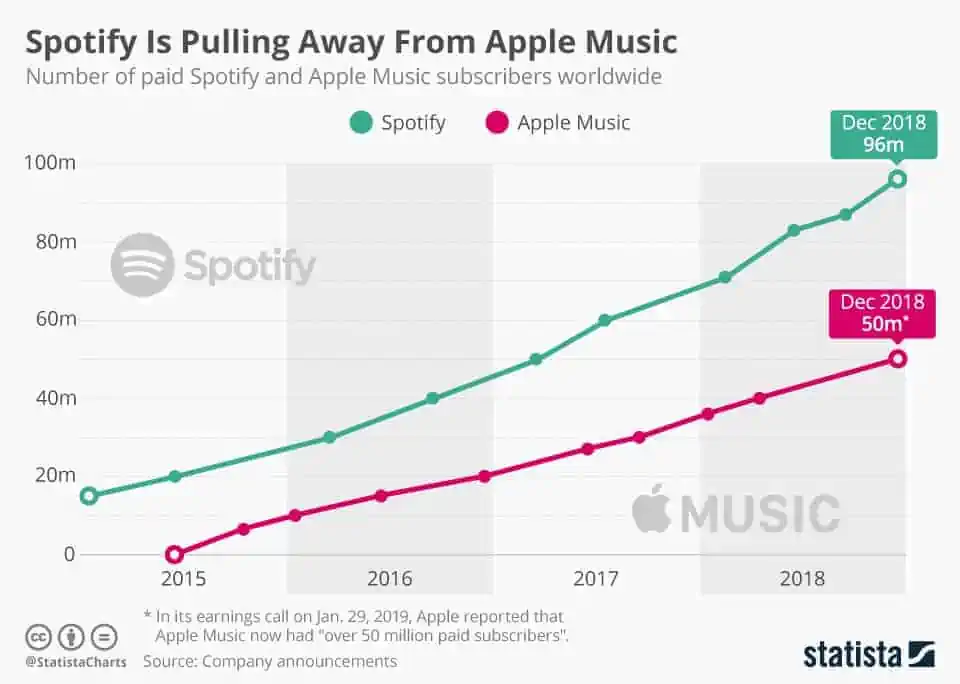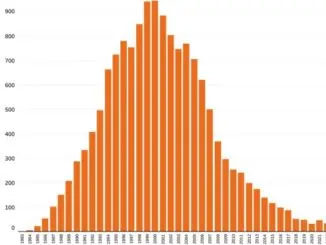
Spotify extends lead over Apple Music with paid subscriptions now reaching 96 million against Apple’s estimated 50 million, according to Statista. When Apple Music was launched in June 2015, industry experts thought that Apple’s enormous installed base of iOS devices together with the company’s legendary flair for marketing and branding would see it come out top in the competition with Spotify.
However, Spotify has proved to be the more innovative moving quickly into new markets, providing near ubiquitous support for connected devices and introducing new features. These include Spotify for Artists which caters for over 300,000 creators, Spotify for Podcasters which was launched in October 2018 and now has more than 10,000 podcasters using the tool on a monthly basis, and Publishing Analytics in Beta which launched in November 2018. In February 2019 it acquired two Podcasting businesses, Gimlet Media and Anchor, and according to Daniel Ek, Spotify co-founder and CEO, has “the goal of becoming the world’s number one audio platform”.
Spotify recently reported its full year earnings and now has 96 million paid subscribers and 207 million monthly active users across its premium and ad-supported tiers. In line with its European heritage, Spotify is most popular in Europe with 40% of its premium subscribers based there. North America is Spotify’s second largest market accounting for 30% of its premium subscriptions.
When Apple Music was launched in June 2015 many people considered it would only be a matter of time before Apple would catch up and overtake Spotify. Apple Music has been slow to come out of its ‘walled garden’ and only recently started to embrace other platforms and devices such as Android and Amazon smart speakers. Given Apple’s track record and huge cash reserves it could easily buy its way into the top slot. One possibility is that Apple’s video streaming service which is rumoured to be spending billions in programme development might end up having Apple Music bundled with it but as yet there are no firm dates for its release, the final shape of the offering and crucially the cost. There would seem to be little room for Apple to charge its usual premium price given the quality of its rivals such as Netflix, Hulu and Spotify.




